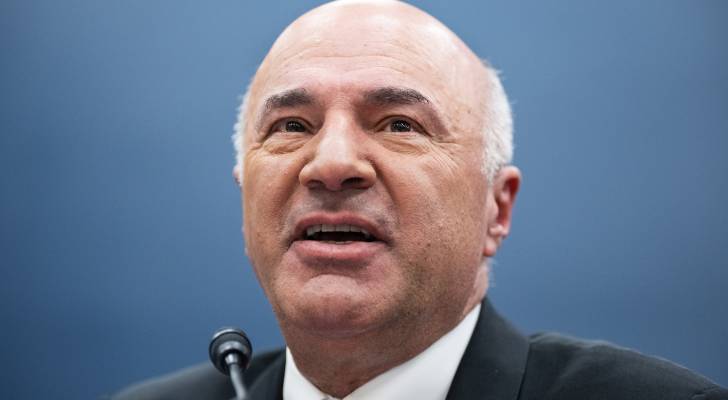
We adhere to strict standards of editorial integrity to help you make decisions with confidence. Some or all links contained within this article are paid links.
Stocks have tumbled in recent weeks as escalating trade tensions amid tariff threats under President Donald Trump rattled investor confidence.
While the market turmoil might tempt some investors to sell, “Shark Tank” star Kevin O’Leary is taking a different approach.
“Nobody likes volatility, but the market was extremely expensive,” O’Leary said in an interview with Yahoo! Finance on March 13. “I’ve lived through multiple corrections of up to 20%. I have to admit, I did some buying lately.”
The sharp pullback in stocks — particularly in the tech-heavy Nasdaq and small-cap Russell 2000 indices — caught O’Leary’s attention.
“I can’t catch the bottom, but I’ve seen great companies that still have great growth prospects selling down,” he said.
O’Leary believes this kind of downturn is exactly the moment investors should be stepping in, even if the headlines are full of doom and gloom.
“Everybody feels, ‘Oh my goodness, it’s the end of the free world as we know it’ — this always happens,” he said. “As an investor you learn that you have to hold your nose, and when there’s blood in the streets you have to be buying. It’s an old adage, but it’s not incorrect.”
What O’Leary says he’s buying
So, what exactly has O’Leary been buying? Rather than picking individual stocks, O’Leary revealed he buys indices, favoring rule-based exchange-traded funds (ETFs) that provide broad exposure while following a disciplined strategy.
“I use ALPS [mutual funds] because I once had an ETF company that did this,” he shared. “I use their OUSA product for the S&P 500 and OUSM for the Russell 2000, and I bought more because it’s on sale.”
While O’Leary is confident in the long-term benefits of buying during downturns, he cautions against trying to predict the exact bottom.
“You just have to look long term and realize these are buying opportunities, but never think you’re going to catch the bottom. I don’t even guess to do that, I don’t try to time the market,” he remarked.
O’Leary’s strategy meets Buffett’s wisdom
O’Leary isn’t the only high-profile investor who champions index investing — Warren Buffet has long been a vocal advocate of the strategy for everyday investors.
Buffett has previously stated: “In my view, for most people, the best thing to do is own the S&P 500 index,” meaning shares in an index fund.
The legendary investor, who Forbes estimates is worth $160-plus billion, believes everyday investors are better off putting their money into a broad-based, low-cost index fund that captures the long-term growth of the U.S. economy.
He believes so strongly in this strategy that he instructed 90% of his wife’s inheritance be invested in “a very low-cost S&P 500 index fund” after he dies.
The beauty of this approach is its accessibility — anyone, regardless of wealth, can take advantage of it. Even small amounts can grow over time with tools like Acorns, a popular app that automatically invests your spare change.
Signing up for Acorns takes just minutes. After linking your cards, Acorns will round up each purchase to the nearest dollar, investing the difference — your spare change — into a diversified portfolio. With Acorns, you can invest in an S&P 500 ETF with as little as $5 — and, if you sign up today, Acorns will add a $20 bonus to help you begin your investment journey.
While investing in an index fund is straightforward, some investors may want guidance on building a portfolio that aligns with their personal financial goals. That’s where a professional can help.
With Vanguard, you can connect with a personal adviser who can help assess how you’re doing so far and make sure you’ve got the right portfolio to meet your goals on time.
Vanguard’s hybrid advisory system combines advice from professional advisers and automated portfolio management to make sure your investments are working to achieve your financial goals.
All you have to do is fill out a brief questionnaire about your financial goals, and Vanguard’s advisers will help you set a tailored plan and stick to it.
Once you’re set, you can sit back as Vanguard’s advisers manage your portfolio. Because they’re fiduciaries, they don’t earn commissions, so you can trust that the advice you’re getting is unbiased.
This article provides information only and should not be construed as advice. It is provided without warranty of any kind.


